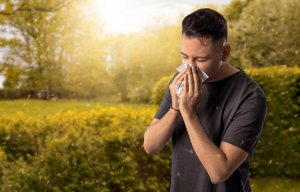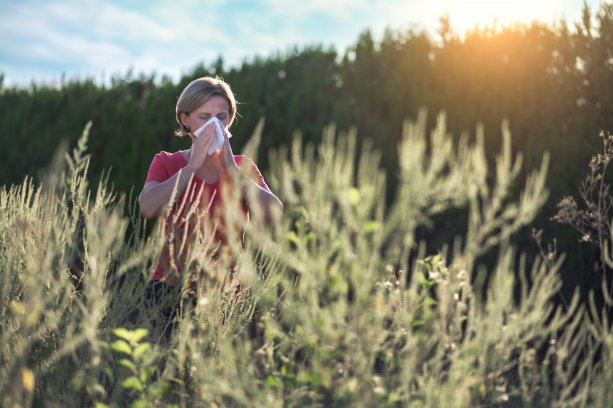
Purissimo NTL for allergen control
Inactive probiotics as spores are encapsulated and integrated into the textiles.

9th March 2021
Innovation in Textiles
|
Ronse, Belgium
Purissimo, allergen control technology produced by Devan of Ronse, Belgium, has been found effective against allergens from pollen. The technology had already been proven to significantly reduce the amount of allergens from house dust mites and pets.
“Allergens are small protein molecules, which can cause allergic reactions and asthma,” explains says Sofie Depluverez, PhD researcher at Devan. “All allergy sufferers are different when it comes to their sensitivity to allergens but few people are only allergic to a single allergen – and the effects of multiple allergens can add up. The key to reducing and even eliminating symptoms is to reduce your exposure to the allergens themselves.”
When people move into a house or bring in a new dog, the number of allergens starts to rise. In the beginning there are few, so the allergy threshold causing symptoms is far from being reached. Nobody is suffering any reaction at this stage.
“As time goes by, the various allergens start to build up inside the house, certainly when ventilation is limited,” Depluverez continues. “As the allergen concentration increases – especially in combination with seasonal allergens such as pollen – the allergy threshold may be reached if no allergen reduction measures are in place.”
Purissimo is a natural allergen control technology that significantly reduces allergens from pet dander, dust mites and pollen in textiles throughout the home. The technology is based on encapsulated probiotics, which are naturally occurring microorganisms similar in kind to those found in products like probiotic yogurt.
Inactive probiotics as spores are encapsulated and integrated into the textiles. Friction opens the microcapsules and releases the spores which absorb humidity and self-activate and are then transformed into probiotic bacteria that start to consume the allergens.
“As the probiotics consume the allergens, exposure is gradually reduced to below threshold levels”, Depluverez adds. “Therefore, individuals with respiratory allergies will be exposed to fewer attacks.”
On Tuesday March 23rd, Devan will elaborate on the technology in a webinar entitled Functionalizing textiles for post-vaccination consumers: Hygiene, sustainability and a natural approach.
Further details at: www.devan.net

Business intelligence for the fibre, textiles and apparel industries: technologies, innovations, markets, investments, trade policy, sourcing, strategy...
Find out more